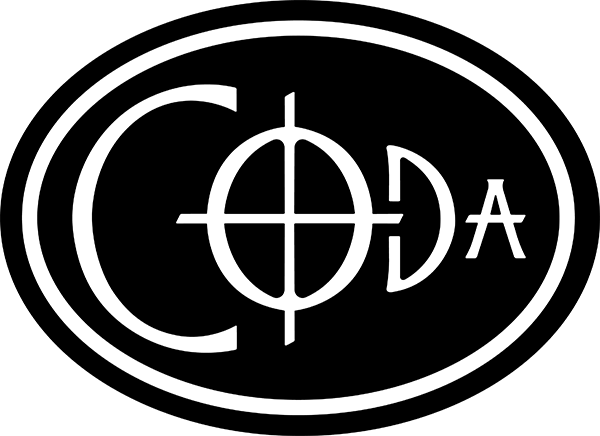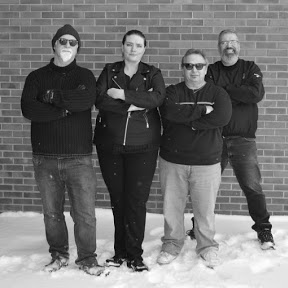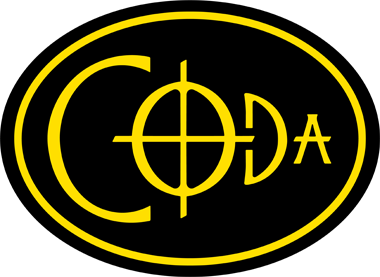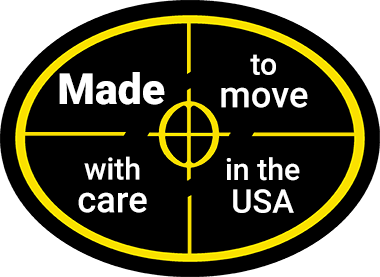Todd Moody
Philadelphia, PA
Coda Was What I Wanted All Along
For full review, click here “…Finally, we have an instrument portable and durable enough to be EDC, but with a two-octave chromatic range. This is enough to play almost any pop or folk song, and even a lot of classical material (such as traditional recorder music). And unlike existing double-chamber ocarinas, it would not require the clumsy switching of the fingers of the right hand between two sets of tone holes.
In addition, Coda’s sound is full and clear throughout its range. The low notes are beautiful, whereas on both recorder and whistle they tend to be weak and fragile; you can’t push them without breaking them. But on Coda you can belt them right out. These days, I play in church most Sundays. I play the sax again, and I’ve picked up the standard concert flute, but I also play Coda every week. It comes through very clearly, even with piano and choir in the mix. People notice it, and often stop by afterwards to ask me what that instrument is that I was playing. It doesn’t sound quite like anything else.
But the most important thing is that it allows me to play anywhere, anytime. I sometimes use the Silencers to practice, but mostly I just play. With Coda, it’s not a problem to just wander off somewhere and play without bugging anyone, especially since I’m not shy about playing outdoors where there are people around. If Coda had existed when I was in school, I would have been playing it. It was what I wanted all along… “
Randy Waugh
Member of Fiùran Band
Ottawa, Canada
Creative Director, Bassist, Bagpiper and Whistle/CODA player
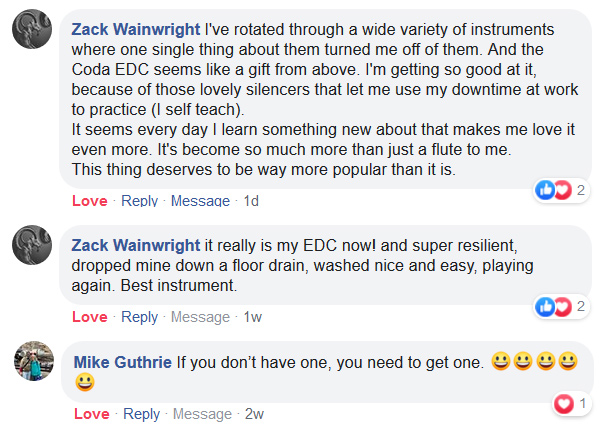
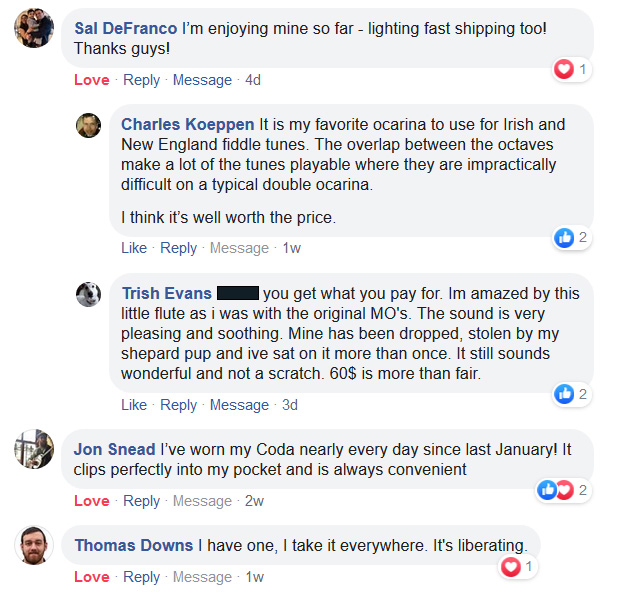

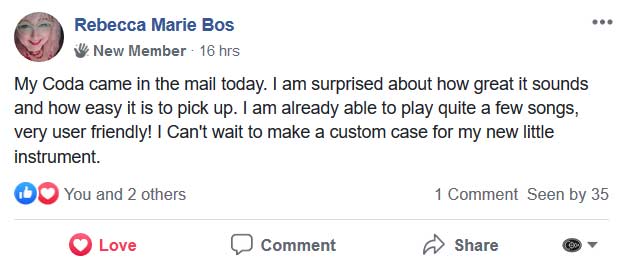
Nick K.
Morgan’s Point Resort, TX
Accept Praise
“My Coda just got here and I’m ecstatic about it. It sounds beautiful, but I’m even more excited that with the silencers I can practice in my small living area without my wife asking me to stop, which is something a drawer full of disused wind instruments has not allowed me to do. I appreciate the hard work and dedication you put into perfecting the Coda!”
Roberto G.
Milan, Italy
Very impressed with your product!
“Wow!! I have very big hands and always struggle to find a nice double ocarina but yours just fits perfectly! When I first saw how small and light it was my hopes went down, but when I played it I could not believe my ears, the sound is excellent in every note! You are wizards, keep up the good work!
Thanks from Italy for your awesomeness.”
“Hi Karl. I just got my silencers! I can’t believe how awesome they are. It is so easy to practice now. I just had to thank you for those… AMAZING
Mike <>< “
Evgeniya D.
Victoria, Canada
“I got my flute a week ago. Thank you so much! Your learning support is very helpful so far and Japanese folk songs with fingering diagrams is a great thing for me to move faster going through routine of the very beginning. And I like silencers very much! Thank you!”
